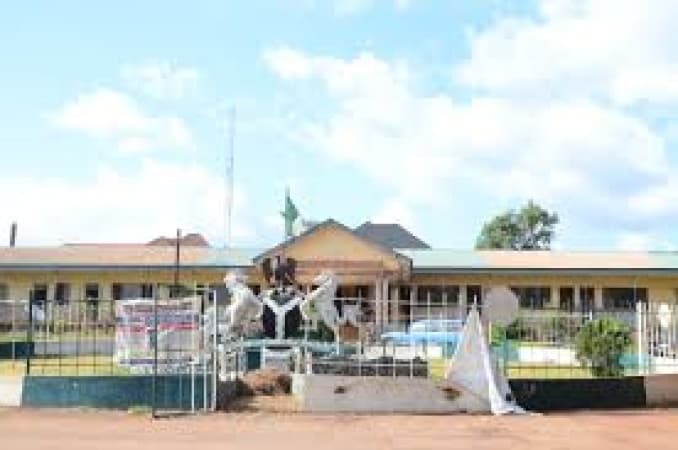
A local government secretariat in Nigeria
A stark contradiction has emerged between Nigeria’s soaring local government revenues and their digital invisibility, with only seven or fewer than a small percentage of the grassroots government having their presence in the digital space.
Despite collectively receiving an estimated N8.93 trillion in federal allocations from 2023 to 2025, putting the yearly windfalls at about N3 trillion, less than one out of every 100 LGAs operates a functional website.
The huge sum, drawn from Federation Account Allocation Committee disbursements, represented a significant increase in revenue for the third tier of government, fuelled by post-subsidy removal policies and foreign exchange adjustments.
However, the absence of a digital footprint across nearly all LGAs signifies a profound lack of commitment to public accountability and the delivery of grassroots governance.
Despite clear benefits, adopting digitalization remains challenging as many local governments face increased skills and technology gaps, infrastructure deficits, socio-economic barriers, and governance issues.
The limited number of LGAs found to have active websites is often concentrated in major metropolitan areas, suggesting a correlation between economic activity and digital maturity.
The challenge may have constrained the reach of the important tier of government to restrict accessibility to individuals and groups with the means to travel to council secretariats.
In 2024, Budgit Foundation (BudgIT), during a policy dialogue hosted by Agora Policy and its partners in Abuja, focused on “Enthroning accountability in local governance in Nigeria”, noted that despite receiving substantial funding, governance issues persist at the local level.
On July 11, 2024, the Supreme Court of Nigeria granted financial autonomy to the 774 local councils, recognizing them as the third tier of Nigeria’s governance architecture. The ruling emphasized that governors lacked the authority to dissolve local government councils and that creating caretaker committees or interim councils would halt funding from the federation account.
Recent checks confirmed that only seven LGAs maintain active digital portals, a finding the Independent Corrupt Practices and Other Related Offences Commission (ICPC) has verified.
The agency described the absence of online transparency across the third tier of government as a “serious accountability gap” undermining democratic governance.
For some LGAs, they rely heavily on the broader state government website and established local news platforms for their digital presence, despite being granted autonomy.
Earlier this year, the Central Bank of Nigeria (CBN) asked local governments (LGs) to open accounts to enable direct disbursement of federal allocations, following a Supreme Court ruling that granted LGs financial autonomy.
The process allows LGs to receive funds directly from the Federation Account, bypassing state governments and ending previous practices of fund deduction.
But for the condition given by the CBN for fund disbursements, many local councils wouldn’t have opened an account, signalling years of dependence on their states for necessities.
Data from the Nigeria Extractive Industries Transparency Initiative (NEITI) and the National Bureau of Statistics (NBS) show that LGAs received N3.06 trillion in 2023, N3.77 trillion in 2024 and about N2.1 trillion so far in 2025 — an unprecedented surge driven by fuel subsidy removal and naira depreciation.
Yet, the majority of these councils operate without a basic digital footprint. A functional website — a minimal tool for modern governance — provides public access to budgetary information, procurement data and service delivery reports.
The absence not only widens the information gap but also frustrates citizens’ ability to monitor key programmes of government at the grassroots level, critique their expenditure and hold the leaders to account.
Out of the 774 constitutionally recognized LGAs, an overwhelming majority remain digitally invisible, conducting their affairs in an opaque manner.
The ICPC specifically said, owing to a lack of functional websites, there is a transparency challenge across all the third tier of government across all six geopolitical zones.
It explained that it would be difficult for Nigerians to enjoy good governance if critical information about LGAs is shrouded in secrecy.
Experts said the failure has nothing to do with resource inadequacy, but everything to do with a culture of neglect, opacity and poor priority.
“Maintaining a website costs a fraction of what councils receive monthly,” said a telecoms analyst, Kehinde Aluko.
“The neglect points to weak institutional capacity, low priority for accountability, and a preference for secrecy,” he noted.
Aluko added that a simple online platform could facilitate community feedback, display contact information, and enhance trust in public administration. “Without it, local officials face no pressure to publish financial records or project details.”
The problem is compounded by political dysfunction. The Supreme Court recently condemned state governors’ reliance on unelected caretaker committees to run local councils, a practice critics say undermines accountability.
Unelected officials, often loyal to governors, rarely feel obligated to report to citizens or maintain transparency mechanisms such as public websites.
A governance expert, Dr. Nnenna Okafor, described the digital void as both a legal and moral failure.
“A local government receiving billions yet claiming it cannot afford a website either lacks capacity or is deliberately avoiding scrutiny,” she said.
“Digital transparency is now the minimum threshold for public accountability,” Okafor added.
Civil society groups have renewed calls for constitutional reforms to guarantee local government autonomy and mandate digital compliance as a precondition for fiscal transfers.
While governance inertia is a factor, experts also cite weak infrastructure and limited rural connectivity as barriers.
The Global System for Mobile Association (GSMA) ranks Nigeria among the 20 countries with the largest Internet access gaps, with roughly 130 million people offline. According to the Universal Service Provision Fund (USPF), some 23 million Nigerians remain either unserved or underserved across 110 communities.
The Nigerian Communications Commission (NCC) estimates that only 23 per cent of rural dwellers currently have Internet access, compared to 57 per cent in urban areas — a gap that reinforces the concentration of functional LGA websites in more developed regions.
Communications and Digital Economy Minister, Dr. Bosun Tijani, admitted the connectivity shortfall, noting that about 25 million Nigerians still live beyond reliable broadband coverage. He said the government is responding through initiatives such as Project 774 LG Connectivity, which aims to link all LGA secretariats to high-speed Internet.
Under the project, the ministry plans to leverage the infrastructure of NigComSat and Galaxy Backbone to deliver Internet service to all LG secretariats nationwide. Tijani said about 40 to 45 LGAs across eight states — Borno, Cross River, Imo, Kogi, Kwara, Ogun, Sokoto and Zamfara — have already been connected using VSAT technology via the NigComSat-1R satellite.
“Our goal is to foster inclusive development and extend digital public infrastructure to every LGA, including the most remote,” Tijani told The Guardian.
“The project will create at least 300 direct jobs during deployment and aligns with President Bola Tinubu’s agenda to modernize grassroots governance,” he noted.
NigComSat targets full coverage of all 774 LGAs by the end of 2026, complementing Project Bridge, the 90,000-kilometre national fibre backbone designed to expand broadband penetration.
Despite the government’s ambition, analysts have warned that connectivity alone would not solve the deeper governance malaise.
Innovation policy advisor and Jidaw.com founder, Jide Awe, said most LGAs remained “technologically dormant” because their leaders still view ICT as a cost rather than an efficiency and productivity enabler.
“It is archaic to treat ICT as an afterthought. Local leaders must understand that technology enhances transparency, productivity, and citizen engagement. Without digitalization, the dream of inclusive growth will remain elusive,” he noted.
Awe urged local councils to adopt an “innovation mindset” — investing in training, infrastructure, and digital literacy — to ensure technology becomes a tool for transformation rather than tokenism.
A senior member of the Association of Telecoms Companies of Nigeria (ATCON), who doesn’t want his name in print, said the situation, which he described as very disappointing, is even more than that.
He said statistics showed that Nigeria has only had 17 per cent digital growth in the last one and a half decades.
According to him, the local governments are not visible digitally because the majority of civil servants, especially at the grassroots lack digital skills.
To make matters worse, most of the telecom industries are situated or are located within the urban centres, while local governments’ areas are at the outskirts, stressing that investment deployed to rural areas is extremely low, which is seen as neglect.
The ATCON member said the local government has not seen the importance of moving its activities online and does not want to be accountable.
“People in the rural areas are supposed to be empowered, but then how are the local governments going to empower them? What is then the essence of creating websites when people cannot use them?” he stated.
In a chat with The Guardian, Senior Manager, Corporate Affairs, NigComSat, Stephen Kwande, said Project 774 was officially launched in early 2024 by the Federal Ministry of Communications, Innovation & Digital Economy (FMoCIDe).
He said under Phase 1, NigComSat reported coverage of 45 LGAs across eight states.
According to him, the second phase has commenced with the procurement of the necessary VSAT, network accessories, and green power solutions, as well as the Identification of the local government.
Kwande disclosed that the Second phase will cover about nine states, including Anambra, Bauchi, Enugu, Kaduna, Katsina, Nasarawa, Niger and Plateau.
On the possible impact on LGAs’ administration this far, he said: “The coverage has impacted the LGAs by establishing and maintaining an online presence, making their activities and resources accessible to citizens and the global community.
“Official websites and portals: LGAs can host websites for information sharing, local news, tenders, and public service updates. Social media engagement: Chairmen, departments, and agencies can connect with residents, showcasing development projects and attracting partners.
“Showcasing local potential: Agriculture, tourism, and artisanal industries have started promoting their products online. Attraction of investment: Improved visibility encourages SMEs, financial institutions, and development agencies to identify opportunities in connected LGAs.”
Emphasizing governance and administrative efficiency, he said that broadband Internet has modernized governance at the local level.
Arguably, Kwande said the project has enabled online tax payments, business registration, civil records, and complaints systems, stressing that the connectivity has allowed LGAs to collect and manage resource data in real-time.
According to him, with broadband, LGAs no longer operate in isolation, saying they have become nodes in the national digital ecosystem, connecting seamlessly to state and federal portals.
Kwande said the project supports Nigeria’s digital economy goals under the National Broadband Plan and the Digital Economy Policy and Strategy (NDEPS). (The Guardian)
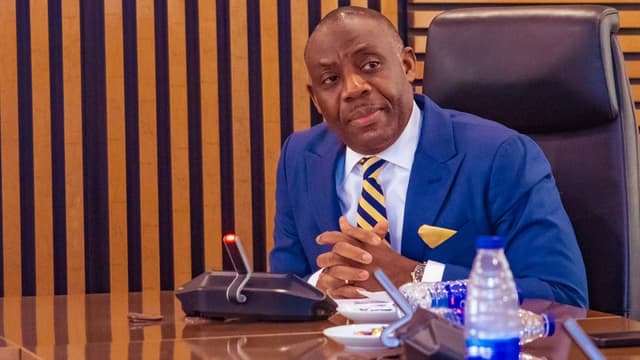
.webp&w=640&q=75)

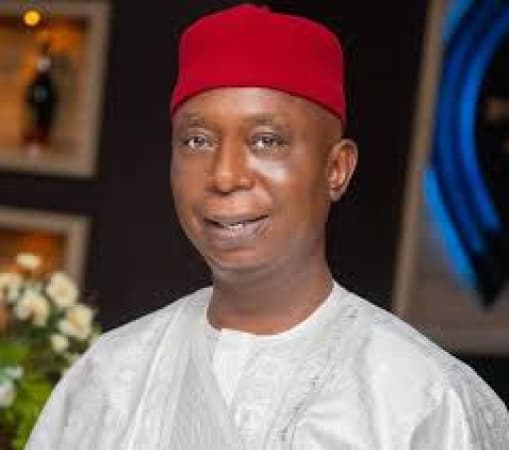



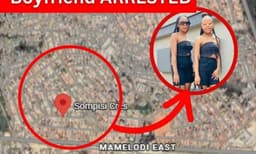

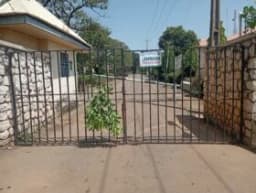
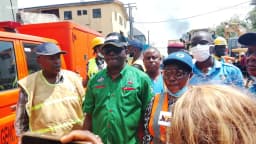


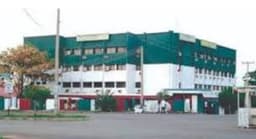
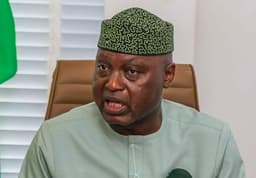
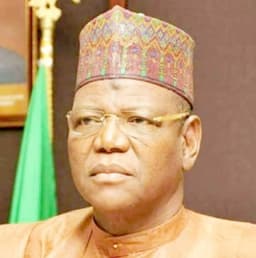


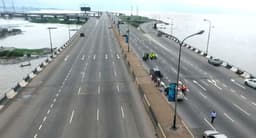
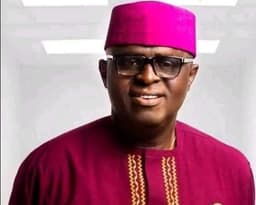

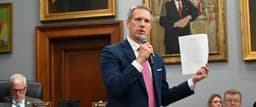

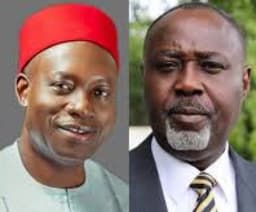

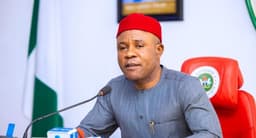

NEWS EXPRESS is Nigeria’s leading online newspaper. Published by Africa’s international award-winning journalist, Mr. Isaac Umunna, NEWS EXPRESS is Nigeria’s first truly professional online daily newspaper. It is published from Lagos, Nigeria’s economic and media hub, and has a provision for occasional special print editions. Thanks to our vast network of sources and dedicated team of professional journalists and contributors spread across Nigeria and overseas, NEWS EXPRESS has become synonymous with newsbreaks and exclusive stories from around the world.